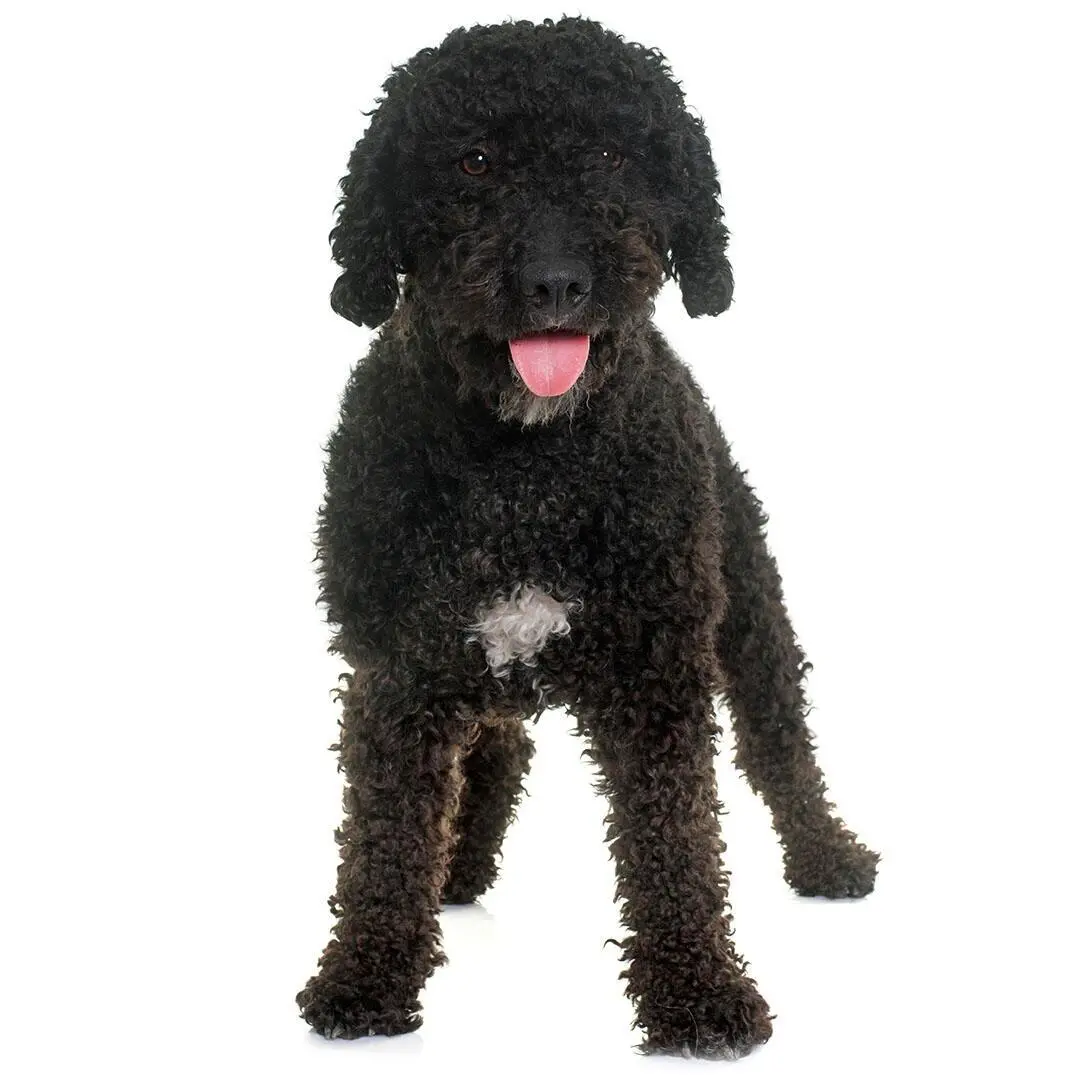
Spanish Water Dog
Spanish Water Dogs are medium-sized, versatile working dogs known for their curly coats and intelligence.
Extended Description
Spanish Water Dogs are medium-sized, versatile working dogs originally bred in Spain for herding and retrieving. They are known for their curly, waterproof coats and intelligence. Spanish Water Dogs are highly adaptable and can excel in various activities, from herding and retrieving to dog sports like agility and obedience.
Interesting Facts
The curly coat of the Spanish Water Dog is waterproof, making it well-suited for working in wet environments.
Care Recommendations
Spanish Water Dogs require regular grooming to maintain their curly coats, including trimming and occasional brushing. They are active dogs and need plenty of exercise and mental stimulation to stay happy and healthy.
Temperament
Spanish Water Dogs are intelligent, loyal, and versatile. They are known for their strong work ethic and their bond with their families. Early socialization and consistent training are important to help them develop into well-rounded adults.
Health Issues
Common health issues in Spanish Water Dogs include hip dysplasia, progressive retinal atrophy, and hypothyroidism. Regular vet check-ups, a balanced diet, and appropriate exercise are essential for their well-being.
Living Conditions
Spanish Water Dogs are adaptable and can thrive in both rural and urban environments, as long as they receive enough exercise and mental stimulation. They do best in homes with access to outdoor space for activities.
Training Tips
Training should be consistent and positive, with plenty of rewards for good behavior. Spanish Water Dogs are intelligent and quick learners, making them responsive to training. Early socialization is important to help them adjust to different environments and situations.
Exercise Needs
Spanish Water Dogs are active dogs that need regular exercise to stay fit and healthy. They enjoy activities like running, swimming, and participating in dog sports. Regular mental stimulation is also important to keep them engaged.
Return to Other Breeds



